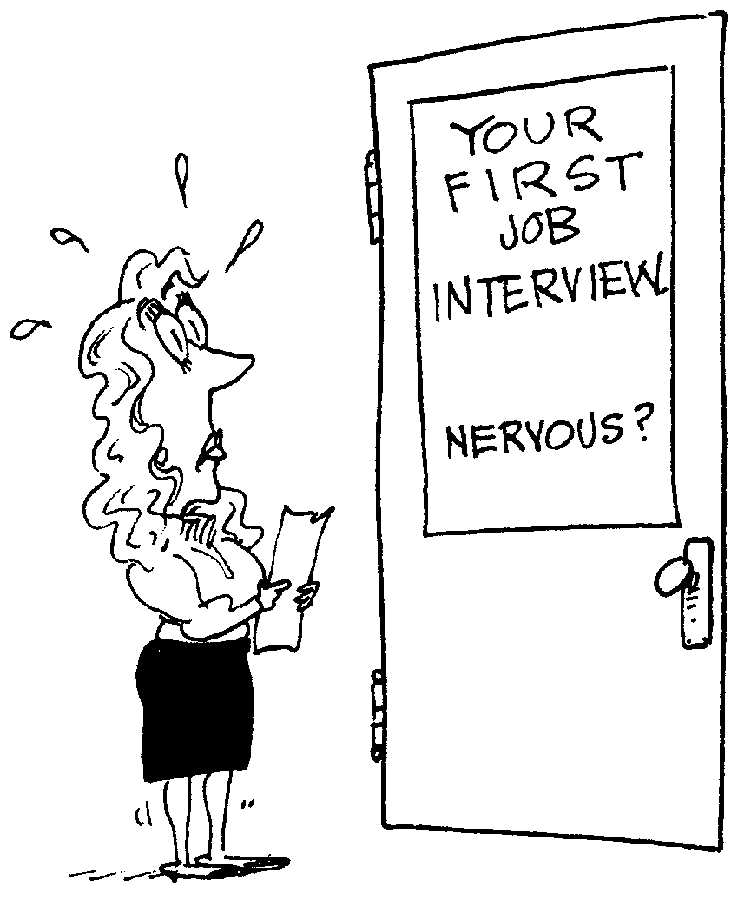Job Interview Tips from Someone Who’s Been There
They’d already done a bit of research. They knew what they planned on wearing, they had a rehearsed answer for “So tell me about yourself,” and they knew about the importance of a firm handshake with eye contact. So what was left?
I think it’s important to note that I’ve never been on the other side of the table. Although I’ve been to many job interviews, it was always as the person being interviewed. In all truthfulness, every situation is going to be unique. Every hiring manager will have their own take on things, so no single article on interview tips will have the “right” information. This being said, you can definitely gain an advantage if you arm yourself with recommendations from more experienced interviewees.
First things first, I think the interview process is pretty broken. The interviewer will plan on spending the interview asking you lots of questions, but they will never ask you the one question that actually matters: “Can you do this job?”
They want to ask you how much you expect to be paid for the position, and they often want this information right away. The reason they want it is so that they can immediately dismiss you if you’re asking for too much. In order to stay in the running for the position, never bring up the topic of compensation first. It gives the impression that you’re more concerned about the money than the work you’ll be doing. Furthermore, never name an amount. It can only hurt you, by either letting the interviewer know you’re too expensive, or letting the interviewer know you can be bought for cheap.
When the interviewer asks you to suggest an amount, you should duck the question. Like I said, they’ll ask this quickly — often in the very first phone interview. Don’t give them an amount, no matter what. Good phrases to use to defer them are: “Until we’ve determined that I am a good match for (company), I feel like discussion of compensation is premature.” and “I would like to be compensated a fair wage for the skills needed to fill this role.”
Generally speaking, you don’t want to talk about money during the first round of interviews. When I got my last job, the HR recruiter gave me a phone interview. After passing that, I had an in-person interview with my future boss, and finally had a second interview with the person above him another day. No real discussions about money were made until after all the in-person interviews took place. The HR recruiter called me with a job offer, which was the first offer.
I’ve found that negotiating salary over the phone, AFTER the company has determined that they want to hire you, is the best position you can be in. When you’re discussing compensation in-person, you are more inclined to accept an offer immediately. I can’t fully explain why, but I suspect it has to do with body-language, and presence: The job offer seems within reach, it’s right in front of you, and you want to just grab it the moment it’s on the table.
As unintuitive as it might seem in an economy where jobs are hard to come by, you should not accept the first offer, ever. Even if it’s more money than you expected, you need to keep cool. Realize that at this point, they’ve demonstrated that they want you. You are their choice for the position. If you accept their first offer, then you successfully got the job, but you most likely accepted a “low ball.” You won’t be eligible for a salary increase for another year or more, and the increase will often be a small “cost of living” increase. What you want to do is maximize your starting salary, because that negotiation opportunity is the best chance you have at increasing your wage. It’s much harder to increase your salary after accepting the position, and it will be a while before it’s appropriate to ask for a raise or promotion.
When they give a number, say $40,000, don’t say anything. If you’re on the phone, they can’t read your body language and they don’t know what to make of a “no reaction.”
Count to 25 to yourself. The silence will be uncomfortable, but it’s uncomfortable for the recruiter too — and sometimes that silence can help you. If the 25 seconds passes and they still haven’t said anything else, repeat the figure back to them slowly, like it’s a question: “For-ty, thousand?” See how much longer you can hold the silence, and then ask them if you can have their phone number and get back to them. Explain how you need to put some numbers together and think it over.
I’ve done this. Maybe it sounds crazy, or stupid, but I’ve done it and it has worked out well for me.
You see, your future boss doesn’t always know how much money is available for your position. The HR recruiter does. This is especially true for large organizations in the private sector. The HR person’s job is to fill the position for the lowest amount possible, but if your future boss selects YOU for the position, then the HR person’s job shifts to making sure that you’re going to accept the job. Think about how upset the boss would be at HR if they messed up a negotiation, and lost their first choice! When the employer is in a “we must have you” mentality, you’re in a position to bump up your compensation more easily.
When I was contacted by the HR recruiter over the phone, and I sat in silence counting to 25, she became uncomfortable and said “If that’s not to your liking, would another $2k make the offer more appealing?” She interpreted the silence as disappointment, and basically gave up the game. Now I knew that the offer was negotiable and they were willing to pay more.
I said “Of course it would make the offer more appealing, but (my current employer) might be willing to match that salary in order to keep me, if I explain that I’m leaving for higher compensation. Can I have a bit of time to crunch some numbers and think it over? How can I get back in touch with you?”
In situations where they’re not willing to offer additional compensation, you can frequently ask for added vacation days instead. Your job offer is a contract, and in my experiences, everything is negotiable. You want to adjust the job offer in any way that will make it more appealing to you. Your future employer doesn’t want you to accept the position and leave 6 months later, that’s a “lose” for everyone involved. They will need to invest the time and resources into refilling the position, and perhaps you left because you didn’t get exactly what you wanted. Maybe you didn’t get exactly what you wanted because you didn’t ask.
At any rate, these are the strategies I’ve successfully used to negotiate salaries that allowed me to change jobs (in a lateral move) while increasing my wage as much as $10k/year. As I already mentioned, everyone will have their own take on things, and each situation is unique. You’ve got to decide what’s applicable to your situation.
Of course, after I told my friend all of this, I realized how I didn’t completely answer their question. Although negotiation is really important, it comes much later in the interview process. It’s something to keep in mind so that you can avoid the compensation discussion in the early rounds, but there are other important things to know in order to nail the first interview.
You want to appear informed. Don’t come in without the slightest clue about what the company does, or what your position is for. They will let you finish the interview, but you won’t get the job.
In order to seem well-prepared you need to ask relevant questions. Demonstrate that you’ve invested time and energy into researching the position and the company. For example, if you checked out their website, maybe they had a link to a news story where their organization was mentioned. Bring this up in the interview, and talk to them about it. Prove to them that you’re not just a person qualified for the job, but someone that’s genuinely interested in the what the company is doing.
If you ask enough questions about the company, you can sometimes turn the tables on the interview completely: You’re actually asking the interviewer more questions than they are asking you, as if you’re interviewing them. The atmosphere will suddenly shift to the point where the interviewer is trying to impress you. In my experiences, this strategy has never failed to get me a second interview, if not the job.
See, an in-person interview is most often just a test to see if you’ll fit in. They want to see if they’ll enjoy working with you every day. In a way, working for someone is kind of like going steady.
So when the interviewer spends the duration of your interview talking about themselves, after the interview is finished they’ll subconsciously like you more than the typical candidate. You see, the easiest way to get strangers to like you is to let them talk about themselves. People LOVE talking about themselves!
Ask questions like “What makes (company) a great place to work?” Engage the interviewer in casual conversation with “How long have you been with (company)? Knowing what you know now after working here (that long), would you do it all over again given the chance? Why?” The important thing is to really get them talking. If you’re asking questions that have simple, one-word answers, be sure to have some related follow-up questions that will cause them to tell you stories. Have fun. Smile. Laugh.
Simply put, the first interview is more about getting the interviewer to like you than proving you’re able to do the job. They already know you can do the job from your resume, and that’s the reason they invited you to the interview in the first place. Now they’re just trying to determine if you’ll fit in there, and if they want to work with you every day.
Good luck!
Related Posts
| If you've found this website helpful, please click the PayPal button. You will be helping me pursue my dream career as a writer. Thanks for your support! |














